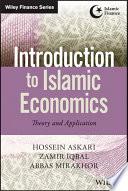
Sistem Ekonomi Indonesia
Sistem ekonomi merupakan keseluruhan dari berbagai institusi ekonomi yang berlaku di suatu perekonomian dalam mengatur bagaimana sumberdaya ekonomi yang terdapat di perekonomian tersebut didayagunakan untuk memenuhi kebutuhan masyarakatnya. Adapun tujuan disusunnya buku ini adalah membantu mahasiswa, akademisi, serta praktisi untuk memahami dan menambah wawasan berpikir dalam ilmu ekonomi terutama yang berkaitan dengan system ekonomi Indonesia. Buku ini terdiri dari 9 (Sembilan) Bab, dengan masing-masing bahasan yang berbeda, antara lain: Definisi dan Komponen Sistem Ekonomi Landasan Filosofis Sistem Ekonomi Indonesia Perkembangan Sistem Ekonomi Indonesia Perubahan Struktur Ekonomi Indonesia Perencanaan Pembangunan Ekonomi Sistem Keuangan dan Moneter Perkembangan Investasi di Indonesia Kependudukan dan Tenaga Kerja Pembangunan Sektor Pertanian
- ISBN 13 : 6233420725
- ISBN 10 : 9786233420723
- Judul : Sistem Ekonomi Indonesia
- Pengarang : Darwin Damanik, Pawer Darasa Panjaitan, Anita Florence Pardede, Akhmad Muhammadin, Ince Weya, Edwin Basmar, Arfandi SN, Bonaraja Purba, Wasrob Nasruddin, Pawer Darasa Panjaitan, Anita Florence Pardede, Akhmad Muhammadin, Ince Weya, Edwin Basmar, Arfandi SN, Bonaraja Purba, Wasrob Nasruddin, Pawer Darasa Panjaitan, Anita Florence Pardede, Akhmad Muhammadin, Ince Weya, Edwin Basmar, Arfandi SN, Bonaraja Purba, Wasrob Nasruddin, Pawer Darasa Panjaitan, Anita Florence Pardede, Akhmad Muhammadin, Ince Weya, Edwin Basmar, Arfandi SN, Bonaraja Purba, Wasrob Nasruddin, Pawer Darasa Panjaitan, Anita Florence Pardede, Akhmad Muhammadin, Ince Weya, Edwin Basmar, Arfandi SN, Bonaraja Purba, Wasrob Nasruddin, Pawer Darasa Panjaitan, Anita Florence Pardede, Akhmad Muhammadin, Ince Weya, Edwin Basmar, Arfandi SN, Bonaraja Purba, Wasrob Nasruddin, Pawer Darasa Panjaitan, Anita Florence Pardede, Akhmad Muhammadin, Ince Weya, Edwin Basmar, Arfandi SN, Bonaraja Purba, Wasrob Nasruddin, Pawer Darasa Panjaitan, Anita Florence Pardede, Akhmad Muhammadin, Ince Weya, Edwin Basmar, Arfandi SN, Bonaraja Purba, Wasrob Nasruddin, Pawer Darasa Panjaitan, Anita Florence Pardede, Akhmad Muhammadin, Ince Weya, Edwin Basmar, Arfandi SN, Bonaraja Purba, Wasrob Nasruddin,
- Kategori : Business & Economics
- Penerbit : Yayasan Kita Menulis
- Bahasa : id
- Tahun : 2021
- Halaman : 162
- Google Book : http://books.google.co.id/books?id=NUgtEAAAQBAJ&dq=intitle:sistem+ekonomi+sosialisme&hl=&source=gbs_api
-
Ketersediaan :
(egaliter) Kenegaraan Struktur Birokrasi Sentralisme (sentralistis) Desentralisme (desentralistis) Kapitalisme (kapitalis) Ideologi Ekonomi Sosialisme (sosialis) Mekanisme Pasar Pengelolaan Ekonomi Perencanaan Terpusat Pada ...









